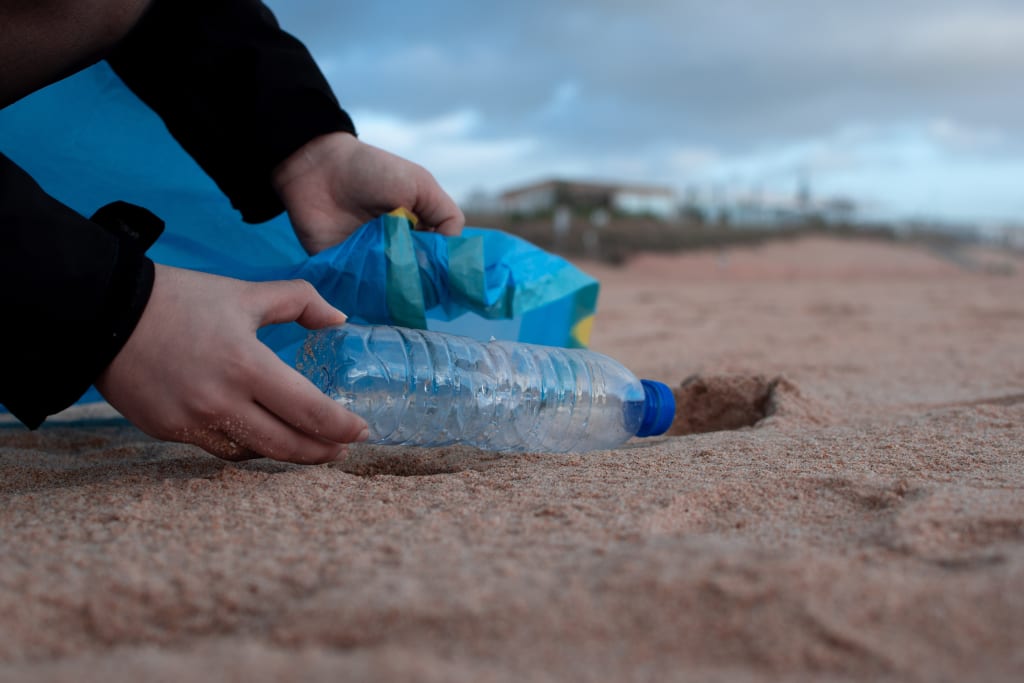
I. Introduction
Brief overview of recycling and its importance
Recycling is the process of converting waste materials into new, usable products. It helps reduce waste, conserve natural resources, save energy, and decrease greenhouse gas emissions. The importance of recycling lies in its ability to preserve the environment, reduce pollution, and conserve finite resources, such as minerals, water, and energy. Additionally, recycling can create jobs and boost the economy by reducing the need to extract raw materials and producing new products.
II. Conserves Natural Resources
Reduction of the need for virgin raw materials
Reducing the need for virgin raw materials is crucial for conserving our natural resources and reducing our impact on the environment. Virgin raw materials are materials that have not been previously processed or used, and the extraction and processing of these materials can have significant environmental impacts, including deforestation, habitat destruction, and greenhouse gas emissions. By reducing the need for these materials, we can reduce the depletion of our natural resources and minimize our environmental impact. This can be achieved through the use of recycled materials, which are materials that have been processed from waste, and through the implementation of sustainable practices, such as reducing waste and conserving resources. By reducing the need for virgin raw materials, we can move towards a more sustainable and environmentally responsible future.
Protection of natural habitats
Protecting natural habitats is crucial in preserving biodiversity and maintaining a healthy environment. Natural habitats provide a home for a wide range of species and are essential for the balance of ecosystems. Destruction of habitats can lead to the loss of plant and animal species, as well as upset the delicate balance of the ecosystem. By preserving natural habitats, we can ensure that future generations will have the opportunity to experience the beauty and diversity of our planet. This can be achieved through conservation efforts such as setting aside protected areas, reducing habitat destruction through development and deforestation, and promoting sustainable use of natural resources.
III. Reduces Greenhouse Gas Emissions
Decrease in energy consumption during production process
Decreasing energy consumption during the production process is an important step in becoming more energy efficient and reducing our carbon footprint. The production process can be a major source of energy consumption and greenhouse gas emissions, but there are many ways to reduce these impacts. Implementing energy-saving technologies, such as using renewable energy sources, improving insulation and lighting, and streamlining production processes can all help to decrease energy consumption. Additionally, companies can adopt sustainable practices, such as reducing waste and recycling, which can further reduce their energy usage. By decreasing energy consumption, businesses can lower their operating costs, reduce their environmental impact, and contribute to a more sustainable future.
Lower emissions from manufacturing processes
Lowering emissions from manufacturing processes is crucial for reducing the environmental impact of industry and mitigating the effects of climate change. Manufacturing processes often result in the release of harmful pollutants, such as greenhouse gases and toxic chemicals, into the air and water. These emissions can have significant impacts on public health, the environment, and the climate. By reducing emissions, we can improve air and water quality, protect public health, and mitigate the effects of climate change. This can be achieved through the implementation of clean technologies and sustainable practices, such as using renewable energy sources, improving energy efficiency, and reducing waste. Companies can also adopt emissions reduction targets and implement strategies to meet those targets. By lowering emissions from manufacturing processes, we can create a cleaner and healthier future for ourselves and future generations.
IV. Saves Energy
Less energy required to recycle materials than to produce new ones
Recycling materials requires less energy compared to producing new ones, making it a more environmentally friendly option. The production of new materials from raw materials often involves significant energy consumption, as well as the emission of greenhouse gases and other pollutants. In contrast, recycling existing materials uses less energy, as the materials have already gone through the initial stages of extraction and processing. This results in lower energy consumption and fewer emissions compared to producing new materials from scratch. By recycling materials, we can conserve energy and reduce our impact on the environment. Additionally, recycling can reduce the demand for virgin raw materials, helping to conserve our natural resources and protect the environment. By reducing energy consumption and emissions through recycling, we can create a more sustainable future.
Reduced energy consumption leads to cost savings
Reducing energy consumption in various processes, such as production and transportation, can lead to cost savings for businesses and households. Energy is often one of the largest expenses for companies and households, and reducing energy consumption can lower these costs. Implementing energy-efficient technologies, such as using energy-saving appliances, improving insulation and lighting, and optimizing production processes, can all help to reduce energy consumption. Additionally, adopting sustainable practices, such as reducing waste and recycling, can also help to lower energy usage and costs. By reducing energy consumption, businesses can lower their operating costs, increase their competitiveness, and contribute to a more sustainable future. The same is true for households, as reducing energy consumption can lower monthly utility bills and help to reduce their impact on the environment.
V. Supports the Economy
Creation of jobs in the recycling industry
The creation of jobs in the recycling industry is a positive consequence of the increased focus on sustainability and the reduction of waste. The recycling industry involves collecting, sorting, and processing waste materials into new products, and as the demand for recycled materials increases, so does the demand for workers in this industry. Jobs in the recycling industry can range from collection and sorting, to manufacturing and sales, providing a wide range of employment opportunities. Additionally, the recycling industry can also help to boost local economies, as it often involves the use of local resources and the creation of local jobs. By promoting the growth of the recycling industry, we can not only reduce waste and conserve resources, but also create new job opportunities and stimulate local economies.
Diversification of the economy and support for local businesses
Diversifying the economy through the development of new industries, such as the recycling industry, can provide support for local businesses and help to create a more resilient and sustainable economy. Supporting local businesses can help to create jobs, stimulate local economic growth, and reduce the dependence on single industries, thereby reducing the risks associated with economic downturns. By promoting the growth of new industries, such as the recycling industry, governments and communities can help to diversify their local economies and create new job opportunities. Additionally, the development of local businesses can also help to build a stronger sense of community and promote self-sufficiency. By supporting local businesses and diversifying the economy, we can create a more sustainable future for ourselves and future generations.
VI. Reduces Waste in Landfills
Decreased pressure on limited landfill space
Reducing the amount of waste that ends up in landfills can help to decrease the pressure on limited landfill space. Landfills are finite resources, and as they become full, communities must find new places to dispose of their waste, which can be expensive and environmentally damaging. Additionally, waste in landfills can release harmful pollutants, such as methane and leachate, into the air and water, posing risks to public health and the environment. By reducing waste through recycling and other sustainable practices, we can decrease the pressure on limited landfill space, reduce the environmental impacts of waste disposal, and conserve natural resources. By taking steps to reduce the amount of waste that ends up in landfills, we can create a more sustainable future and ensure that our communities have access to safe and effective waste management solutions.
Avoidance of negative environmental impacts from landfills
Avoiding negative environmental impacts from landfills is a key benefit of reducing waste through recycling and other sustainable practices. Landfills can have significant impacts on the environment, including air and water pollution, soil contamination, and the release of greenhouse gases. As waste in landfills decomposes, it can release harmful pollutants, such as methane and leachate, into the air and water. These pollutants can pose risks to public health and the environment. Additionally, landfills can also be a source of litter and illegal dumping, which can have negative impacts on wildlife and habitats. By reducing waste and promoting recycling, we can avoid the negative environmental impacts associated with landfills and help to create a cleaner, healthier future. By reducing our waste and promoting sustainable practices, we can create a more sustainable future and ensure that our communities have access to safe and effective waste management solutions.
VII. Promotes Sustainability
Promotion of a circular economy
The promotion of a circular economy is a key benefit of reducing waste through recycling and other sustainable practices. The circular economy is a new economic model that aims to keep resources in use for as long as possible, thereby reducing waste and conserving natural resources. This is achieved by closing the loop on the lifecycle of products, from production to consumption, reuse, and recycling. By promoting a circular economy, we can reduce waste, conserve resources, and create a more sustainable future. A circular economy supports the development of new industries, such as the recycling industry, and creates new job opportunities, while also reducing the environmental impact of waste disposal. Additionally, a circular economy helps to build resilience in communities and local economies by reducing dependence on finite resources and promoting self-sufficiency. By promoting a circular economy, we can create a more sustainable future and ensure that our communities have access to safe and effective waste management solutions.
A sustainable approach to resource management
A sustainable approach to resource management is essential for creating a better future for ourselves and future generations. This approach involves managing resources in a way that meets our current needs while ensuring that they will be available for future generations. This can be achieved through practices such as recycling, reducing waste, and conserving energy. By adopting a sustainable approach to resource management, we can reduce the impact of our activities on the environment and conserve natural resources. Additionally, a sustainable approach to resource management can also help to create new job opportunities, stimulate local economic growth, and build a stronger sense of community. By promoting a sustainable approach to resource management, we can create a better future for ourselves and future generations and ensure that our communities have access to safe and effective waste management solutions.
VIII. Decreases Air and Water Pollution
Reduction in air pollution from transportation and production processes
Reducing air pollution through recycling and other sustainable practices can have a significant positive impact on public health and the environment. The transportation and production of goods can release harmful pollutants into the air, including greenhouse gases, nitrogen oxides, and particulate matter. These pollutants can cause respiratory and cardiovascular health problems, as well as contribute to climate change. By reducing the need for transportation and production through recycling, we can decrease the amount of air pollution from these processes and help to create a cleaner, healthier future. Additionally, recycling can also help to reduce the need for raw materials, which are often extracted through environmentally damaging processes, such as mining and drilling. By reducing air pollution from transportation and production processes, we can create a more sustainable future and ensure that our communities have access to safe and effective waste management solutions.
Lower risk of water pollution from extracting and processing raw materials
Lowering the risk of water pollution from extracting and processing raw materials is a key benefit of reducing waste through recycling and other sustainable practices. Extracting and processing raw materials, such as minerals, can have significant impacts on water quality, as these processes can release pollutants into waterways, such as heavy metals and chemicals. These pollutants can harm aquatic life, impair drinking water quality, and have other negative impacts on the environment and public health. By reducing the need for raw materials through recycling, we can lower the risk of water pollution from these processes and help to conserve water resources. Additionally, recycling can also reduce the need for energy-intensive production processes, which can also have significant impacts on water quality, such as through the discharge of thermal pollutants. By reducing the risk of water pollution from extracting and processing raw materials, we can create a more sustainable future and ensure that our communities have access to safe and effective waste management solutions.
IX. Creates New Products
Creation of new products through recycling
The creation of new products through recycling is a key benefit of reducing waste and promoting sustainability. This not only reduces the demand for new products, but also supports the development of new industries and creates new job opportunities. By recycling materials, we can conserve natural resources, reduce greenhouse gas emissions, and lower the risk of environmental pollution. Additionally, recycling can also reduce the need for energy-intensive production processes, as it requires less energy to recycle materials than to produce new ones. By creating new products through recycling, we can support a more sustainable future and ensure that our communities have access to safe and effective waste management solutions. Additionally, promoting the use of recycled products can also help to create a closed-loop economy, where resources are kept in use for as long as possible, reducing waste and conserving resources. By reducing demand for new products and promoting recycling, we can create a more sustainable future and support the development of a circular economy., reducing demand for new products
Development of new technologies and manufacturing processes
The development of new technologies and manufacturing processes is a key benefit of reducing waste through recycling and promoting sustainability. As recycling becomes more widespread and the demand for recycled materials grows, it drives innovation in the waste management and manufacturing sectors. This can lead to the development of new technologies and processes that are more efficient, cost-effective, and environmentally friendly. These innovations can help to reduce greenhouse gas emissions, lower the risk of environmental pollution, and conserve natural resources. Additionally, the development of new technologies and processes can also create new job opportunities, stimulate local economic growth, and support the growth of the recycling industry. By promoting the development of new technologies and manufacturing processes, we can create a more sustainable future and ensure that our communities have access to safe and effective waste management solutions.
X. Conclusion
Recap of the benefits of recycling and its importance for a sustainable future.
Recycling is a crucial component of a sustainable future, and its benefits are numerous. By reducing waste and conserving natural resources, recycling helps to protect the environment and public health. Recycling can also reduce the need for virgin raw materials, lower emissions from production processes, and decrease energy consumption, which can lead to cost savings. Additionally, recycling creates jobs in the waste management and manufacturing sectors, supports local businesses, reduces pressure on limited landfill space, and avoids negative environmental impacts from landfills. The creation of new products through recycling, as well as the development of new technologies and manufacturing processes, further supports the growth of a circular economy and a sustainable approach to resource management. By reducing air and water pollution, recycling can also help to lower the risk of environmental damage and improve public health. In conclusion, recycling is essential for a sustainable future, and its benefits are numerous, from conserving resources to promoting economic growth and innovation.
About the Creator
krish
Freelance writer and blogger sharing meaningful stories about universe, nature and humanity. Daring to know more, exploring and sharing insights on a journey of discovery. Join me in this never-ending quest for knowledge.






Comments
There are no comments for this story
Be the first to respond and start the conversation.